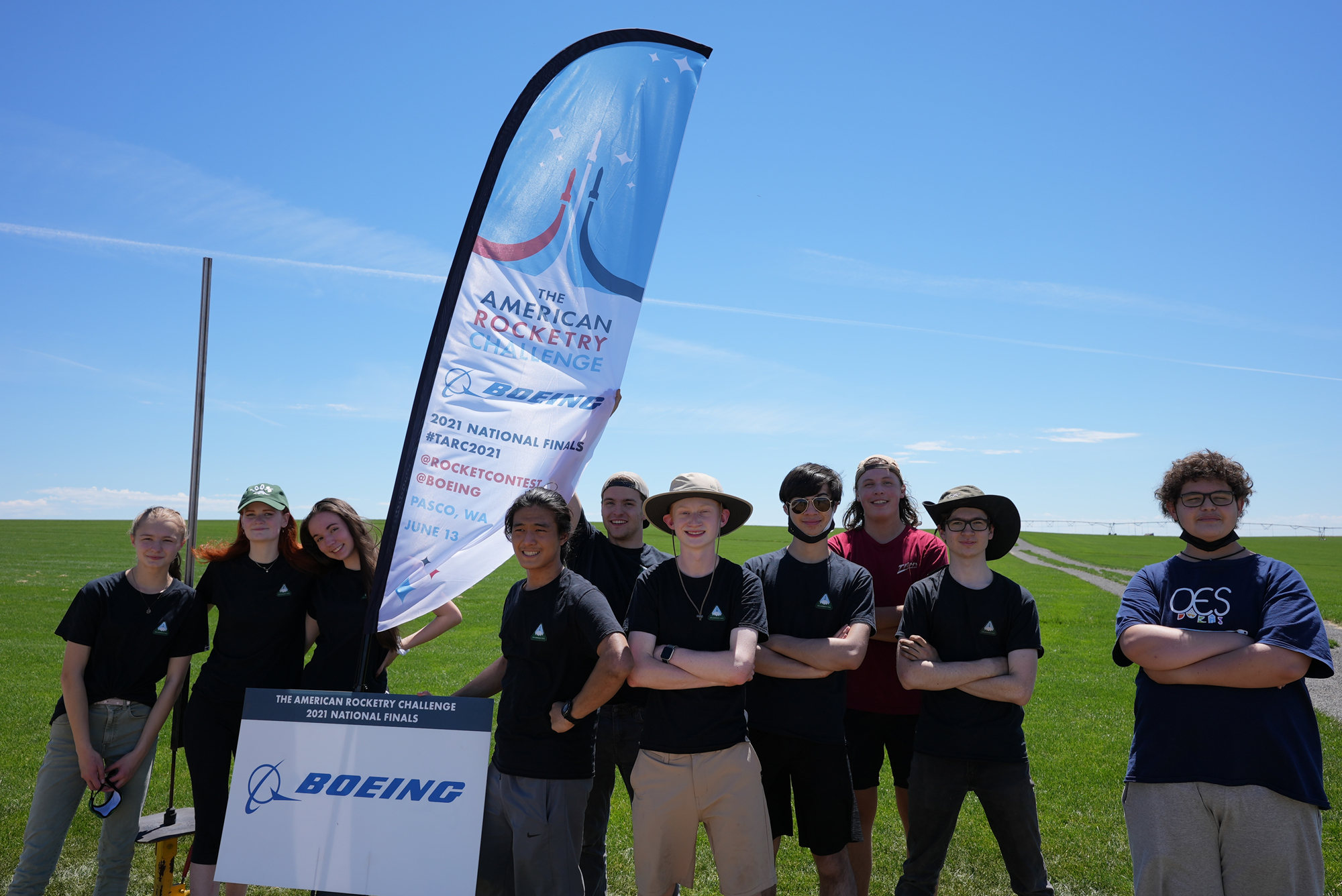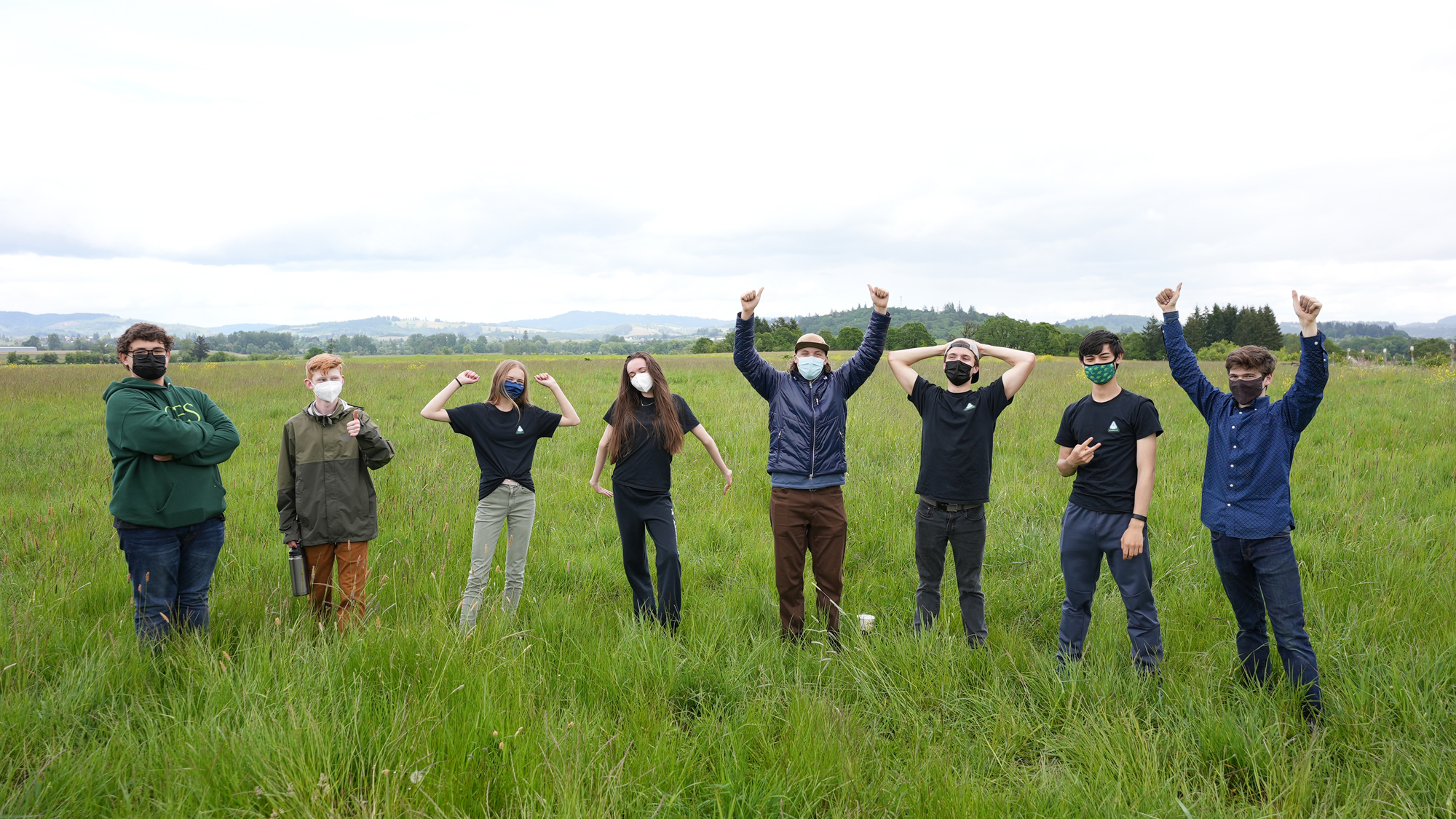American Rocketry Challenge sees Portland school take 2021 championship
Breaking space news, the latest updates on rocket launches, skywatching events and more!
You are now subscribed
Your newsletter sign-up was successful
Want to add more newsletters?

Delivered daily
Daily Newsletter
Breaking space news, the latest updates on rocket launches, skywatching events and more!

Once a month
Watch This Space
Sign up to our monthly entertainment newsletter to keep up with all our coverage of the latest sci-fi and space movies, tv shows, games and books.

Once a week
Night Sky This Week
Discover this week's must-see night sky events, moon phases, and stunning astrophotos. Sign up for our skywatching newsletter and explore the universe with us!

Twice a month
Strange New Words
Space.com's Sci-Fi Reader's Club. Read a sci-fi short story every month and join a virtual community of fellow science fiction fans!
A Portland-area high school came out on top in a new "distributed" version of this year's American Rocketry Challenge that was optimized for pandemic safety.
Oregon Episcopal School received $20,000 for coming within one foot and 6.7 feet (2 meters) of a specified altitude in two flights, putting it best among 100 national finalists. As a first-time finalist, the school also received $2,500 for posting the best results among the rookies, and an additional $1,000 given to each finalist participant for placing best in their distributed launch site — bringing the total haul close to $25,000.
To qualify for the winner's circle, participating finalist teams had to get as close as they could to 775 feet (236 m) within 39 to 42 seconds on their first flight, and 825 feet (nearly 252 m) within 41 to 44 seconds on their second flight, according to competition rules. (The rocket also had minimum weight, length and motor qualifications, among other things.)
Related: How rockets work: a complete guide
"It's really hit me, finally, after the amount of media coverage" in the weeks after the competition over two weekends ending June 20, said Kara Gaiser, who graduates in 2022 and was OES Aerospace co-team leader. Gaiser and fellow co-leader Zachary Weinstein were among the team members attending a virtual awards ceremony June 28 on Zoom, with their various members scattered as far as Spain — making the ceremony also a unique experience, she said.
Weinstein — who also will graduate in 2022 — said the 10 team students had a range of skills, but most of all OES was working to recruit people who were willing to learn the various competencies today's rocket engineer requires, including fuels, materials, computer-assisted design and computer programming.
The challenge, he added, takes the theoretical work of physics studied in the classroom "into something that you're actually designing, and may or may not work. I think that's really cool for people to see the skills that they've been learning applied to a real-world problem, and that gets them excited about learning more."
Breaking space news, the latest updates on rocket launches, skywatching events and more!
The American Rocketry Challenge, which celebrates its 20th anniversary this coming year, found itself having to adapt quickly when the novel coronavirus pandemic descended upon the world in March 2020. Last year's event had to be canceled for health and safety reasons. With vaccines coming in this year, the organizers planned on a range of event possibilities from a fully virtual one, to larger groups.
The compromise solution saw a new "distributed final" with 10 sites around the country where students could launch their rockets with verification from challenge officials, allowing them to chance to participate safely. The challenge of letting the students fly was not too different than the questions space companies and agencies across the world faced in manufacturing facilities and operations buildings in terms of safety protocols, challenge program manager Jeremy Davis told Space.com.
"We saw such tremendous resilience and perseverance from the students," Davis said, adding that adjustments had been ongoing for months as the pandemic evolved. "That is really a characteristic that I feel the aerospace and defense industry really embodies, so we really felt like we owed it to them [students] to work through every possible option."
Another benefit for students generally was a renewed push towards diversity in 2020, when the competition started a Title I grant program. Title I is a U.S. Department of Education term broadly referring to "schools with high numbers or high percentages of children from low-income families" — historically these schools have diverse populations.
The 2021 iteration of the Title I program did not go to plan and only had 11 grantees, Davis said. But the 2020 version provided 40 grants of $2,500 each to Title I-designated schools to fund rocketry work, with benefits including mentorship from the National Association of Rocketry along with the Aerospace Industries Association (AIA).
One of those Title I grantees, Missouri's Woodridge Middle School, made it to the finals for the first time, Davis said. But even those Title I schools that were in the first stage of the competition (650 institutional participants in all) received benefits such as mentorship connections, rocketry experience and a push to continue studies in science, technology, engineering and math (STEM), he said.
The competition has so far attracted 90,000 participants in its history, and organizers say they anticipate holding a 2022 competition — although it is still too early to decide on the format given the novel coronavirus continues evolving, along with health guidance to mitigate its spread.
Follow Elizabeth Howell on Twitter @howellspace. Follow us on Twitter @Spacedotcom and on Facebook.

Elizabeth Howell (she/her), Ph.D., was a staff writer in the spaceflight channel between 2022 and 2024 specializing in Canadian space news. She was contributing writer for Space.com for 10 years from 2012 to 2024. Elizabeth's reporting includes multiple exclusives with the White House, leading world coverage about a lost-and-found space tomato on the International Space Station, witnessing five human spaceflight launches on two continents, flying parabolic, working inside a spacesuit, and participating in a simulated Mars mission. Her latest book, "Why Am I Taller?" (ECW Press, 2022) is co-written with astronaut Dave Williams.



